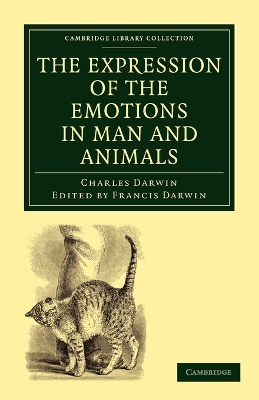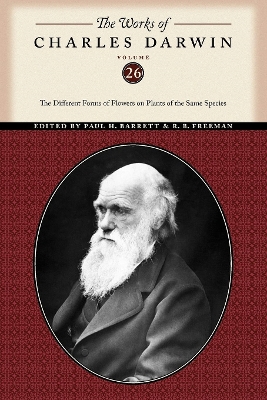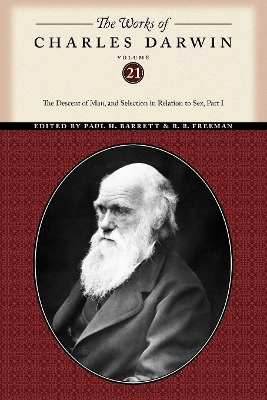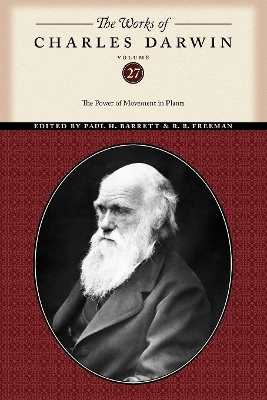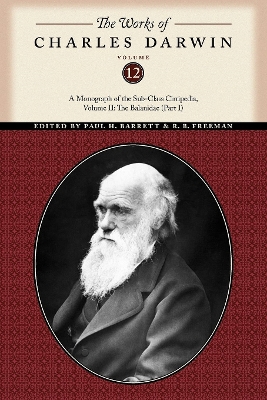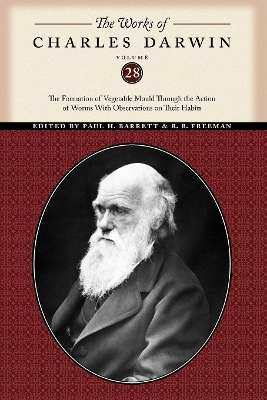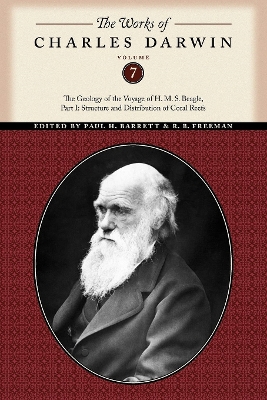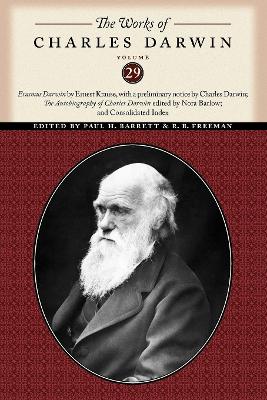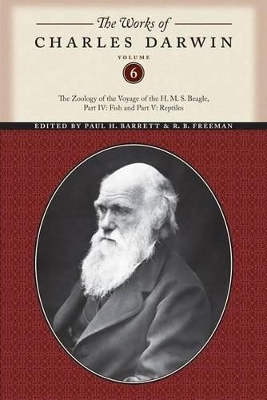The Works of Charles Darwin
9 total works
Charles Robert Darwin (1809–1882) has been widely recognized since his own time as one of the most influential writers in the history of Western thought. His books were widely read by specialists and the general public, and his influence had been extended by almost continuous public debate over the past 150 years. New York University Press's new paperback edition makes it possible to review Darwin's public literary output as a whole, plus his scientific journal articles, his private notebooks, and his correspondence.
This is complete edition contains all of Darwin's published books, featuring definitive texts recording original pagination with Darwin's indexes retained. The set also features a general introduction and index, and introductions to each volume.
Charles Robert Darwin (1809–1882) has been widely recognized since his own time as one of the most influential writers in the history of Western thought. His books were widely read by specialists and the general public, and his influence had been extended by almost continuous public debate over the past 150 years. New York University Press's new paperback edition makes it possible to review Darwin's public literary output as a whole, plus his scientific journal articles, his private notebooks, and his correspondence.
This is complete edition contains all of Darwin's published books, featuring definitive texts recording original pagination with Darwin's indexes retained. The set also features a general introduction and index, and introductions to each volume.
Charles Robert Darwin (1809–1882) has been widely recognized since his own time as one of the most influential writers in the history of Western thought. His books were widely read by specialists and the general public, and his influence had been extended by almost continuous public debate over the past 150 years. New York University Press's new paperback edition makes it possible to review Darwin's public literary output as a whole, plus his scientific journal articles, his private notebooks, and his correspondence.
This is complete edition contains all of Darwin's published books, featuring definitive texts recording original pagination with Darwin's indexes retained. The set also features a general introduction and index, and introductions to each volume.
Charles Robert Darwin (1809–1882) has been widely recognized since his own time as one of the most influential writers in the history of Western thought. His books were widely read by specialists and the general public, and his influence had been extended by almost continuous public debate over the past 150 years. New York University Press's new paperback edition makes it possible to review Darwin's public literary output as a whole, plus his scientific journal articles, his private notebooks, and his correspondence.
This is complete edition contains all of Darwin's published books, featuring definitive texts recording original pagination with Darwin's indexes retained. The set also features a general introduction and index, and introductions to each volume.
Charles Robert Darwin (1809–1882) has been widely recognized since his own time as one of the most influential writers in the history of Western thought. His books were widely read by specialists and the general public, and his influence had been extended by almost continuous public debate over the past 150 years. New York University Press's new paperback edition makes it possible to review Darwin's public literary output as a whole, plus his scientific journal articles, his private notebooks, and his correspondence.
This is complete edition contains all of Darwin's published books, featuring definitive texts recording original pagination with Darwin's indexes retained. The set also features a general introduction and index, and introductions to each volume.
Charles Robert Darwin (1809–1882) has been widely recognized since his own time as one of the most influential writers in the history of Western thought. His books were widely read by specialists and the general public, and his influence had been extended by almost continuous public debate over the past 150 years. New York University Press's new paperback edition makes it possible to review Darwin's public literary output as a whole, plus his scientific journal articles, his private notebooks, and his correspondence.
This is complete edition contains all of Darwin's published books, featuring definitive texts recording original pagination with Darwin's indexes retained. The set also features a general introduction and index, and introductions to each volume.
Charles Robert Darwin (1809–1882) has been widely recognized since his own time as one of the most influential writers in the history of Western thought. His books were widely read by specialists and the general public, and his influence had been extended by almost continuous public debate over the past 150 years. New York University Press's new paperback edition makes it possible to review Darwin's public literary output as a whole, plus his scientific journal articles, his private notebooks, and his correspondence.
This is complete edition contains all of Darwin's published books, featuring definitive texts recording original pagination with Darwin's indexes retained. The set also features a general introduction and index, and introductions to each volume.
The Works of Charles Darwin, Volumes 1-29 (complete set)
by Charles Darwin, Paul H. Barrett, and R. B. Freeman
Are they needed? To be sure. The Darwinian industry, industrious though it is, has failed to provide texts of more than a handful of Darwin's books. If you want to know what Darwin said about barnacles (still an essential reference to cirripedists, apart from any historical importance) you are forced to search shelves, or wait while someone does it for you; some have been in print for a century; various reprints have appeared and since vanished."
—Eric Korn, Times Literary Supplement
Charles Robert Darwin (1809–1882) has been widely recognized since his own time as one of the most influential writers in the history of Western thought. His books were widely read by specialists and the general public, and his influence had been extended by almost continuous public debate over the past 150 years. New York University Press's new paperback edition makes it possible to review Darwin's public literary output as a whole, plus his scientific journal articles, his private notebooks, and his correspondence.
This is complete edition contains all of Darwin's published books, featuring definitive texts recording original pagination with Darwin's indexes retained. The set also features a general introduction and index, and introductions to each volume.
